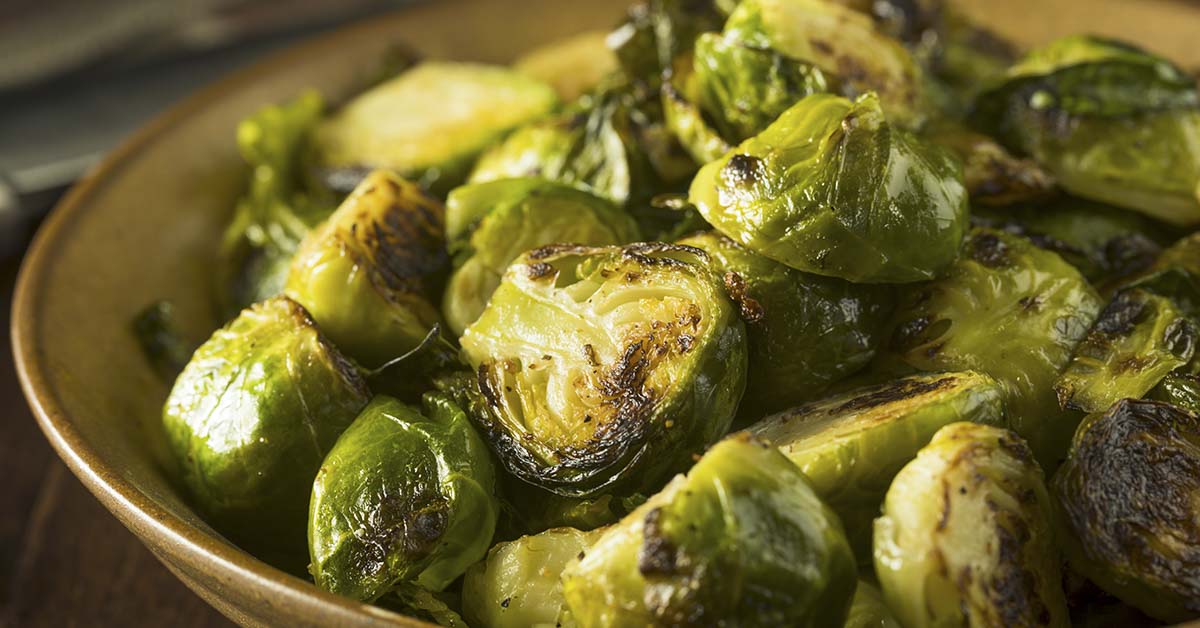Are you a fan of brussels sprouts? Those small, green vegetables that look like mini cabbages? If you are excellent – consider this your permission to eat more of them! If not, this is your invitation to join the brussels sprout fan club, because these small, green, cruciferous vegetables pack a real nutritional punch.
Why You Should Start Eating More Brussels Sprouts
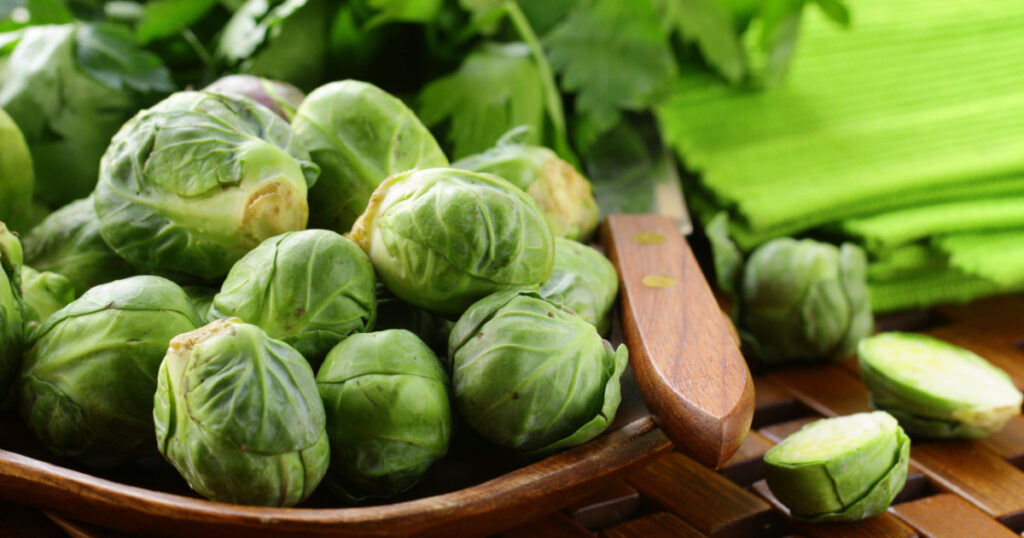
Brussels sprouts, technically called Brussels sprouts, are named so because of their history of cultivation in Brussels, Belgium. They belong to the cruciferous vegetable family, which also includes kale, cauliflower, broccoli, collard greens, bok choy, and cabbage. Though they may be a bit bitter by themselves, when prepared appropriately they can be an incredibly tasty addition to any meal. What’s better, is that they are highly nutritious. These are just a few reasons why you should start eating these sprouts more often. (1)
Read: Is Shrimp Healthy? Everything You Need to Know About Shrimp Nutrition
1. Supports Healing
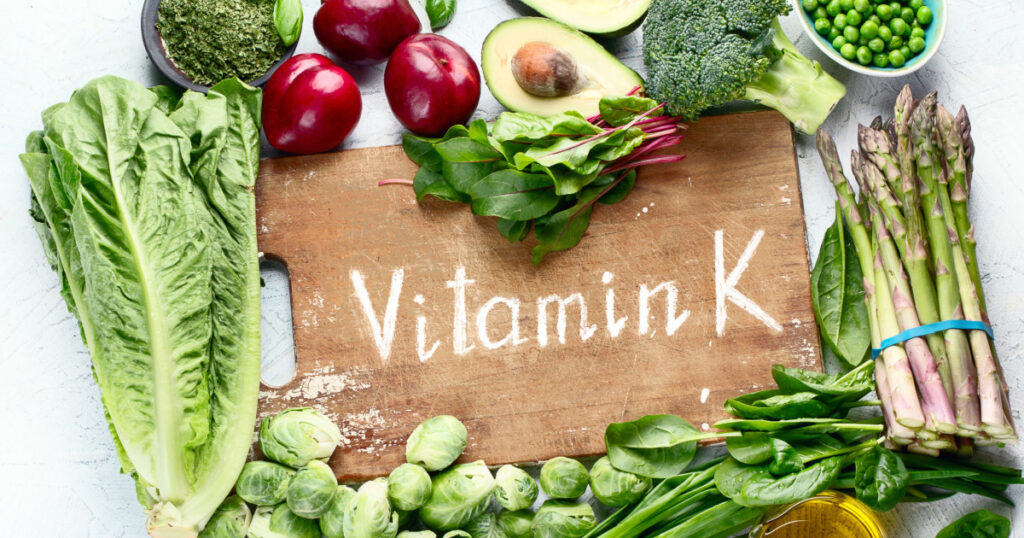
Brussels sprouts are high in vitamin K. Vitamin K is the vitamin that helps your blood clot when you injure yourself and prevents excessive bleeding. (2) They also have high amounts of vitamin C, the antioxidant that promotes tissue repair. Vitamin C does this by increasing the production of collagen in the skin so that your skin will heal more quickly and smoothly. (3)
2. Builds Strong Bones

Yet again, thanks to the high levels of vitamin K, brussels sprouts support strong bones and bone health. Vitamin K has a very important role in the formation of our bones. There are several vitamin-k dependent proteins involved in bone mineralization, turnover, and calcification.
3. Cancer Protection
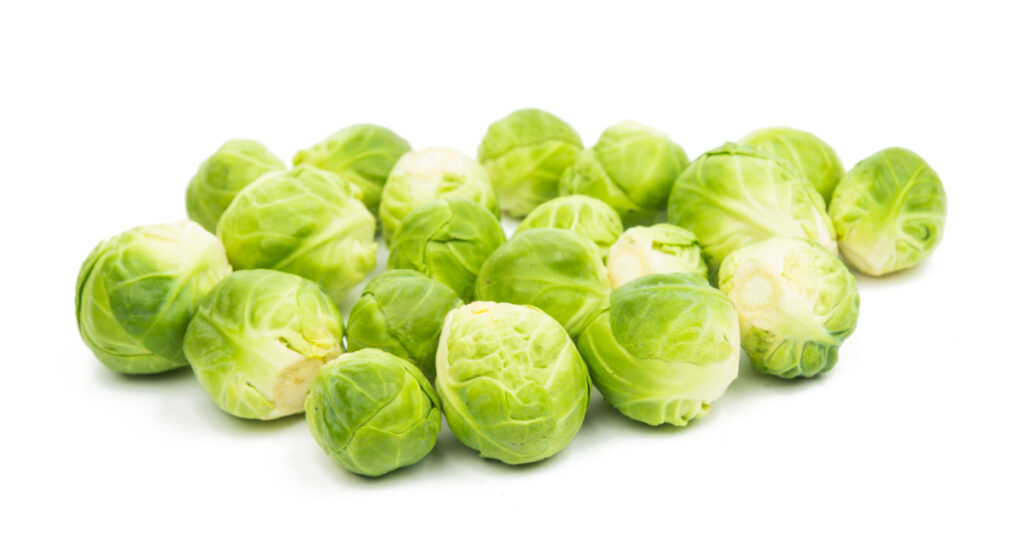
Brussels sprouts have been shown to support the prevention of certain types of cancer. This is in part due to their high levels of antioxidants and other important phytonutrients. Another important factor is the high amount of fiber that they contain. Experts say that there is probable evidence that foods containing fiber, such as brussels sprouts, decrease the risk of colorectal cancer. They can also help to reduce the risk of other digestive system-related cancers, such as mouth, pharynx and larynx; esophageal; lung, and stomach cancer. Naturally, as a vegetable that is a part of a healthy diet, they can aid in reducing the risk of other cancers, as well. (4)
Read: How Might Ginger Help with Obesity and Fatty Liver Disease?
4. Promotes Immune Health

Beyond just high levels of vitamin C, brussels sprouts contain plenty of important phytochemicals. These are bioactive compounds that help kick-start your immune system, reduce inflammation, and stimulate natural detoxification. All of these functions will help keep you healthy when the cold and flu season kicks in. (5)
5. Weight Management

Brussels sprouts are a low-calorie addition to any meal. Their high levels of fiber also help to assist in satiety, meaning that they will fill you up without consuming too many calories. Plant-focused diets have also been shown to reduce the amount of the hormone leptin circulating in the body. Leptin is the hormone responsible for sending fullness cues to the brain, and having too-high levels can cause message confusion so you eat more. (6)
6. Lowers Diabetes Risk

In 2016, researchers published a study that showed that people who eat higher amounts of cruciferous vegetables had a reduced risk of developing type 2 diabetes. This is largely due to their antioxidant content. These antioxidants also help to protect against cancer and heart disease. (7)
Read: Woman makes it her mission to teach people how to make healthy food from Dollar Tree ingredients
7. Reduces Inflammation

Chronic inflammation can cause a wide range of health problems and chronic illnesses. The phytonutrients in brussels sprouts reduce the risk of many chronic diseases, such as heart disease, cancer, and more. (8) A 2014 study showed that people who ate more cruciferous vegetables had lower levels of inflammatory markers in both their blood and urine. (9)
The Bottom Line
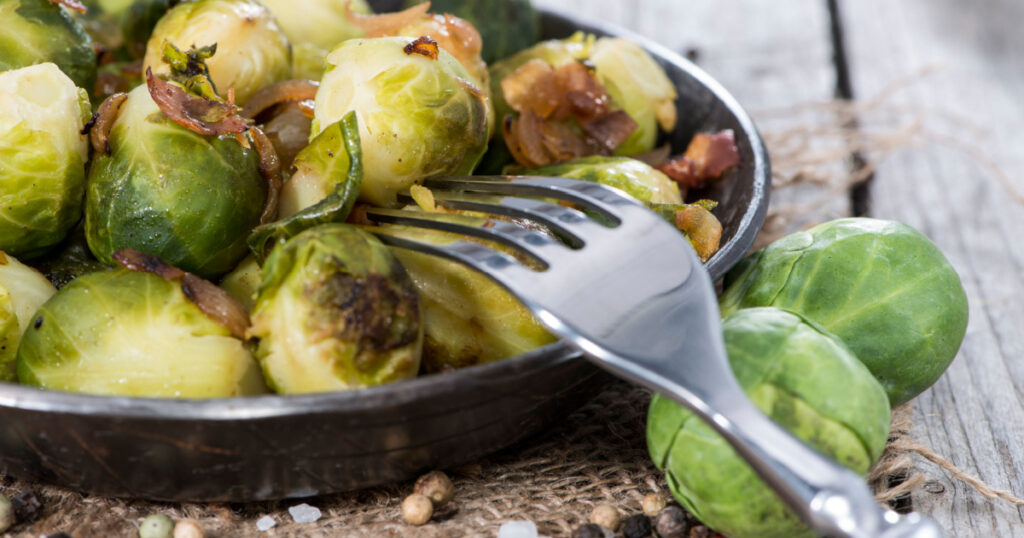
Brussels sprouts are an excellent addition to your regular veggie routine. You can prepare them in a variety of ways, such as finely sliced in salads, roasted in the oven, and more. The important aspect that all the studies mentioned is that you need to be eating them regularly in order to see the benefits. So go to the store, stock up, and start eating more brussels sprouts.
Keep Reading: 9 Foods That Support Liver Function
Sources
- “5 Health Benefits of Brussels Sprouts.” Health. Cynthia Sass, MPH, RD. August 15, 2022.
- “Vitamin K.” NIH
- “Brussels Sprouts Nutrition Facts and Health Benefits.” Very Well Fit. Barbie Cervoni MS, RD, CDCES, CDN. August 11, 2021.
- “The Cancer Research.” AICR. January 22, 2020
- Wydawnictwa
- “Association between different types of plant-based diets and leptin levels in healthy volunteers.” OJS. Patrycja Gogga, et al. 2019
- “Consumption of citrus and cruciferous vegetables with incident type 2 diabetes mellitus based on a meta-analysis of prospective study.” Primary Care. Xiujuan Jia, et al. August 1, 2016.
- “The Beginner’s Guide to Cruciferous Vegetables.” Eat Right. Esther Ellis, MS, RDN, LDN. August 13, 2020.
- “Cruciferous Vegetable Intake Is Inversely Correlated with Circulating Levels of Proinflammatory Markers in Women.” Journal of the Academy of Nutrition and Dietetics. Yu Jiang, MD, MPH, et al. May 1, 2014.
